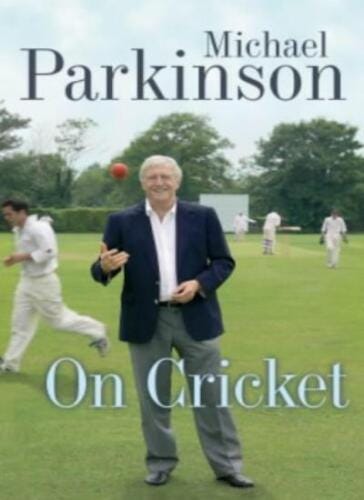In death Michael Parkinson was granted the boon he had craved most dearly in life: a Yorkshire cap, granted by the club. His family placed it on his coffin, along with a sea of white roses, and a red-and-white Barnsley scarf, so this cricketer of the heart took his leave as a fulfilled man.
Geoffrey Boycott and Dickie Bird, comrades at Barnsley in the days when three young men from a modest background dreamt of becoming great batsmen, were in the congregation of family and close friends at the church of St Michael in Bray, where Parky had lived for half a century. Mark Nicholas, the incoming president of MCC, was also there, along with Jimmy Tarbuck and Tom Courtenay. But it was not a gathering of the famous. Our friend was not a celebrity. His absence of vanity was one of the reasons he was our friend.
It was a traditional service, moving in its simplicity and serenity. The Grimethorpe Colliery band from the coalfield where Parky was born opened the innings with the most famous of Elgar’s Pomp and Circumstance marches, and Harry Stoneham’s theme tune from the celebrated television chat show supplied a final flourish. Sofia Parkinson, grandchild, read Philip Larkin’s An Arundel Tomb, and there was room, of course, for the American Songbook.
Mike junior set up the number, as its singer, Frank Sinatra would have done, by honouring the writer, Jerome Kern, the lyricist, Dorothy Fields, and the arranger, Nelson Riddle. He then reminded us, as his father did so often, that the very best is good enough. The Way You Look Tonight was the song. One of the gleaming jewels from that treasury, for Mary.
Larkin and Sinatra. Now that is an opening partnership.
Tarbuck, paying tribute, took us to Anfield and an FA Cup tie between Liverpool and Barnsley; one of many comic romps they shared. ‘To be born a gentleman’, he said, ‘is an accident of birth. To die as one is an achievement’.
Andrew, preceding his brother, recalled a father who handed on his love of sport to the children, as well as those other things which enhance a life. Fittingly he quoted at length from a superb piece Parky wrote about Fred Trueman after the fast bowler died in 2006. Although nobody needed to be reminded what a beautiful writer he was, it didn’t hurt to hear his son read the words which honoured one of England’s greatest cricketers.
He loved the game of bat and ball as fully as he loved those wonderful songs, and the people who sang them. The impulse was similar. It was the aesthete who saw in Trueman’s action a thing of beauty even though the man’s physical appearance was far from ideal. It was the aesthete who heard in Kern’s melody and Sinatra’s baritone some quality that Larkin described in his poem for Sidney Bechet: ‘on me your voice falls as they say love should, like an enormous yes’.
‘For now we see through a glass, darkly’. We heard those words from Corinthians, read by another grandchild, Ben. But darkness cannot eclipse the best of human life. At Bray, on a lovely autumnal morning, the kind made for saying farewell to cricket for another year, we said goodbye to a friend, and light prevailed.




